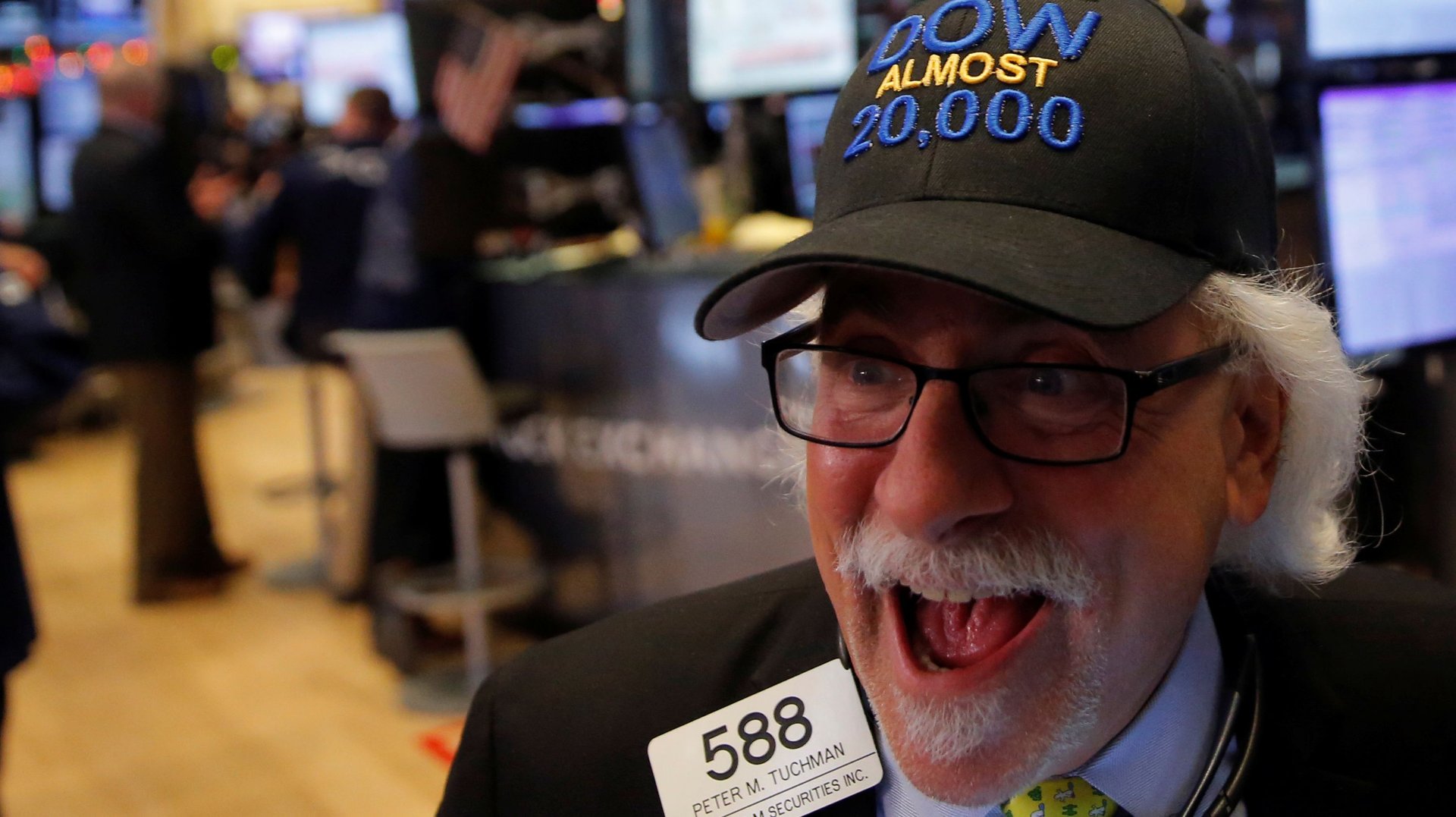Larry Summers: The “sugar high” of the Trump stock rally won’t last
Less than a week ago, the Dow Jones Industrial Average hit 20,000 for the first time ever. The milestone was marked with all the proverbial ink one would expect for a big, round (but arguably meaningless) number. Then came the obvious question: How long will the rally continue?


Less than a week ago, the Dow Jones Industrial Average hit 20,000 for the first time ever. The milestone was marked with all the proverbial ink one would expect for a big, round (but arguably meaningless) number. Then came the obvious question: How long will the rally continue?
Larry Summers is hazarding a guess.
“[M]arket timing is a fool’s game but I remain persuaded that markets and the economy are most likely enjoying a sugar high that will not last a year,” the former US Treasury secretary blogged yesterday (Jan. 29).
Summers, who served in the Clinton administration and returned to Harvard after working as an economic adviser to the Obama White House, outlined several reasons for investors to be wary about the future for stocks.
Dow 20,000 is a meaningless benchmark
The Dow is made up of 30 companies, with Goldman Sachs making up over 20 % of the stock index’s gain since Trump’s election on Nov. 8. ”The Dow is an odd and arbitrary index which weights companies by their share price not their market value,” Summers writes. In other words, the 20,000 mark isn’t a forecasting tool—it says little if anything about where stocks are going next.
It’s a mistake to judge policy on the immediate market reactions to them
Quoting what he says was an oft-repeated observation of Robert Rubin, Summers’ immediate predecessor as Treasury secretary, Summers noted that “markets go up, markets go down.” The rallies and dips frequently have little to do with the real effects of newly announced or expected policies.
“The observation that the best post-election pre-inauguration performance of the stock market in the last 100 years occurred during Herbert Hoover’s transition underscores this point,” Summers writes.
Market indicators show possible trouble ahead
While financial-sector stocks have been especially strong over the last several months, Summers highlights a recent Wall Street Journal article about insider selling at some of Wall Street’s biggest banks. If executives are cashing in, other investors might be wise to consider doing the same.
We still don’t understand the fundamental basis for a big rally
“If ’pro-business policies’ were key over time it would not be the case that Democrat administrations have consistently seen stronger markets than Republican ones over the last 70 years,” Summers notes.
And for all of the goodwill the Trump administration seems to have with investors, on the expectation that he’ll promote business-friendly policies, his protectionist platform suggests that revenue generated overseas by big, US-based companies ”will not be enhanced by new US domestic policies but may be hurt by new nationalist measures.”
Other new governments with authoritarian tendencies have ushered in bull markets before disaster ensued
“Governments with much stronger authoritarian tendencies than anything plausible in the USA like those of Hitler or Mussolini nonetheless saw strong markets in their early years,” Summers wrote.